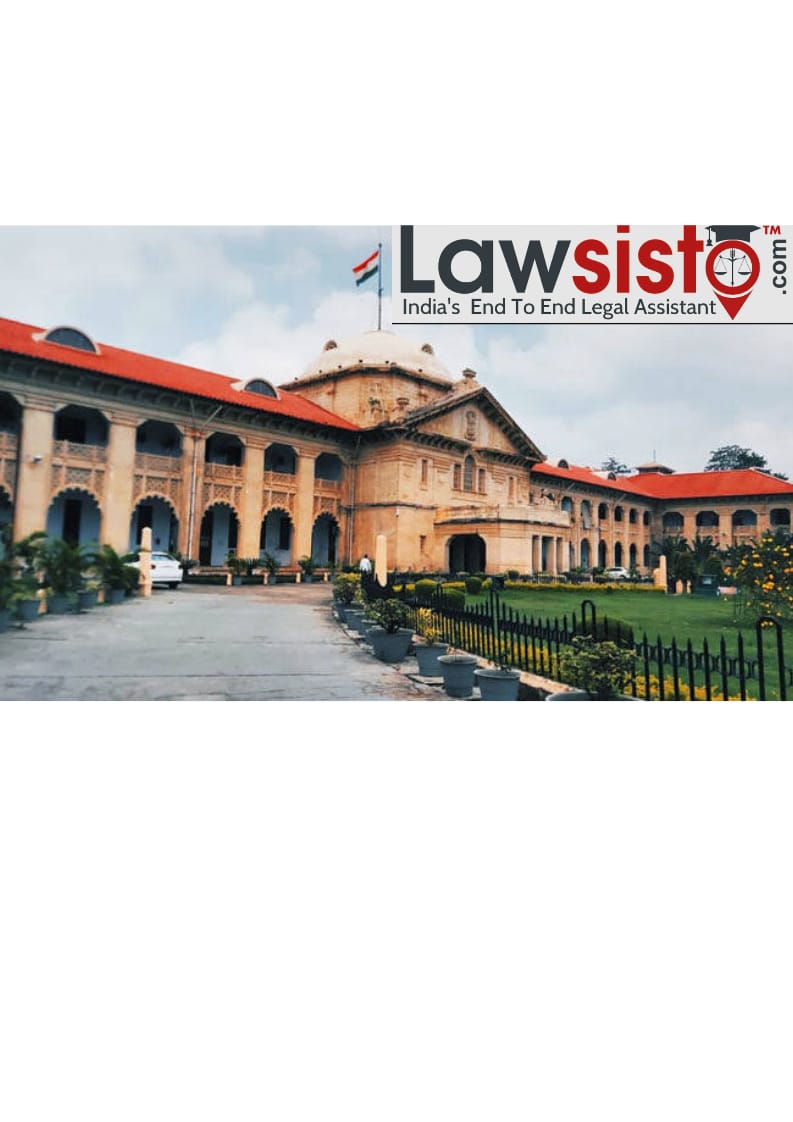Latest News
Allahabad HC Denies Anticipatory Bail to the Accused

Economic offenders are only concerned about personal gain at the cost of “irreparable” loss to the society, the Allahabad High Court observed on Thursday as it rejected the anticipatory bail plea of a man accused in a money laundering case [Pankaj Grover v. Directorate of Enforcement].
Justice Chandra Dhari Singh noted that such offenders commit crimes to get “more and more” money and are not concerned about a society that made them “human beings” and provided them with status, position, respect, and reputation. Such persons have no problem spending a huge amount of money.
The Court was acting on the plea by one Pankaj Grover, a former “sleeping” director of M/s Surgicoin Medequip Pvt. Ltd. Grover and his father, accused of conniving with each other in order to hide the “proceeds of crime” from the allegedly laundered money.
The case is related to the misappropriation of funds meant for the National Rural Health Mission (NRHM) scheme in Uttar Pradesh. The agency alleged that the accused had “clandestinely” sold off half of the factory properties after knowledge of initiation of present proceedings under the Prevention of Money Laundering Act.
According to the allegations, the written directions given by the father to his son, which were recovered during the search, established that they were in possession of the property acquired from the proceeds of crime. Such properties were stated to have been being attached by the agency in 2017. The investigation also estimated the proceeds of crime to the tune of Rs 21.20 crore.
In the defense of the applicant, his counsel argued that the present complaint was filed by the investigating authority after a lapse of eight years from the date of the Enforcement Case Information Report (ECIR). It was argued that the inquiry was supported by the applicant as and when directed, and therefore, his custody was not necessary. While deciding the plea, the Court highlighted that offenders of socio-economic offenses were economically sound as the proceeds of crime in such cases were much larger.
The court noted that in releasing them on bail/anticipatory bail probability of absconding not within the country but beyond the country is more probable. Usually, socio-economic offenders abscond to some other country and after that, it becomes difficult to bring them back and complete the criminal proceeding against them. The order further highlighted that in order to gain “more and more profit” or to quickly “become rich” such criminals caused problems to the society jeopardizing the safety and security of lives of others.
The court observed that in the way to accumulate money and to get physical commodities, life, property, and well-being of common persons have no value. Criminal acts committed by such persons are creating a serious challenge before the criminal justice system. It is difficult to identify whether a crime was committed, when it is identified that crime was committed, it is difficult to find out clues and thereby evidence. When evidence is available, the nature of the evidence is completely different as not possible to be collected by simple investigating, presented by the prosecution agency, and ultimately to convict and sentence. When sentenced, a simple sentence is not effective to deal with such modern criminals and their criminality.
Such a criminal, of a “modern criminality”, was stated to be respected and influential with position, status, standing, and means, thereby always being in a situation to influence the proceedings in an investigation and prosecution, tamper with the evidence and pressurize witnesses. Calling the socio-economic criminals as economically sound and belonging to an elite class, the Court underscored that the change in society had triggered a “complete change” in the nature, cause, mode, rate and impact of crime on individual members of the society” and the society at large.it added that further, all and every stereotype of crime and criminals have completely changed and it is causing greater problems to criminal justice. Previously crimes were committed by unsocialized or (sic) mal-socialized or improperly socialized persons for whom all traditional criminologists have been of opinion that they belong to lower class, such criminals were committing a crime in an unorganized manner without proper planning or completely in an unplanned manner by using crude modus operandi leaving clues on the crime scene, traditional evidence was available particularly eyewitnesses, crimes were committed to satisfy need and necessity or enmity or jealousy or lust.
The Court, however, clarified that its observations were “exclusively” for the anticipatory bail application and “shall not affect the trial in any manner”.
Senior Counsel IB Singh assisted by advocates Priyam Kumar Singh, Amit Shukla, Dhruv Rajpurohit, Kshitij Agnihotri and Neha Shukla appeared for the applicant. Additional Solicitor General Shiv P Shukla appeared for the Enforcement Directorate.
Document:



































































































